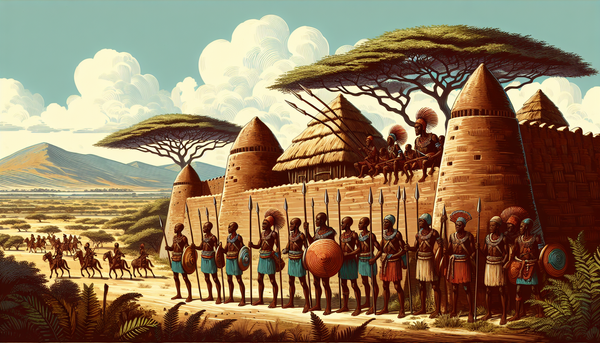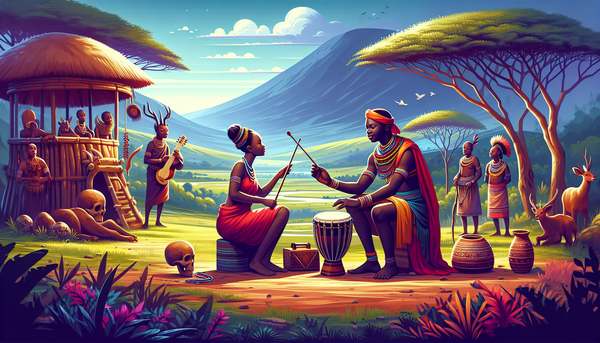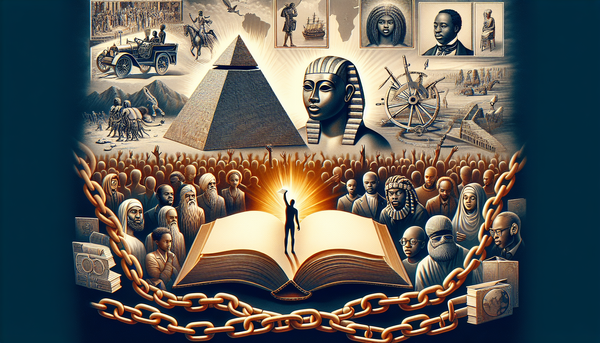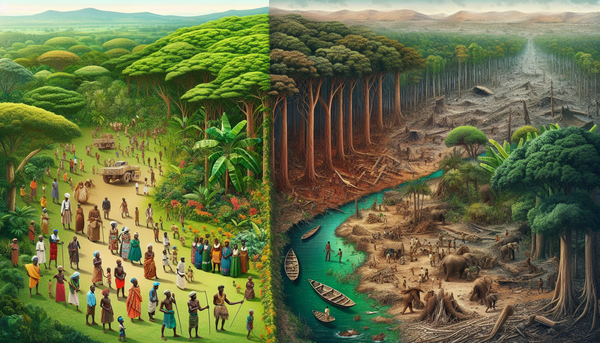The Legacy of Ancient African Kings and Queens in Modern Politics
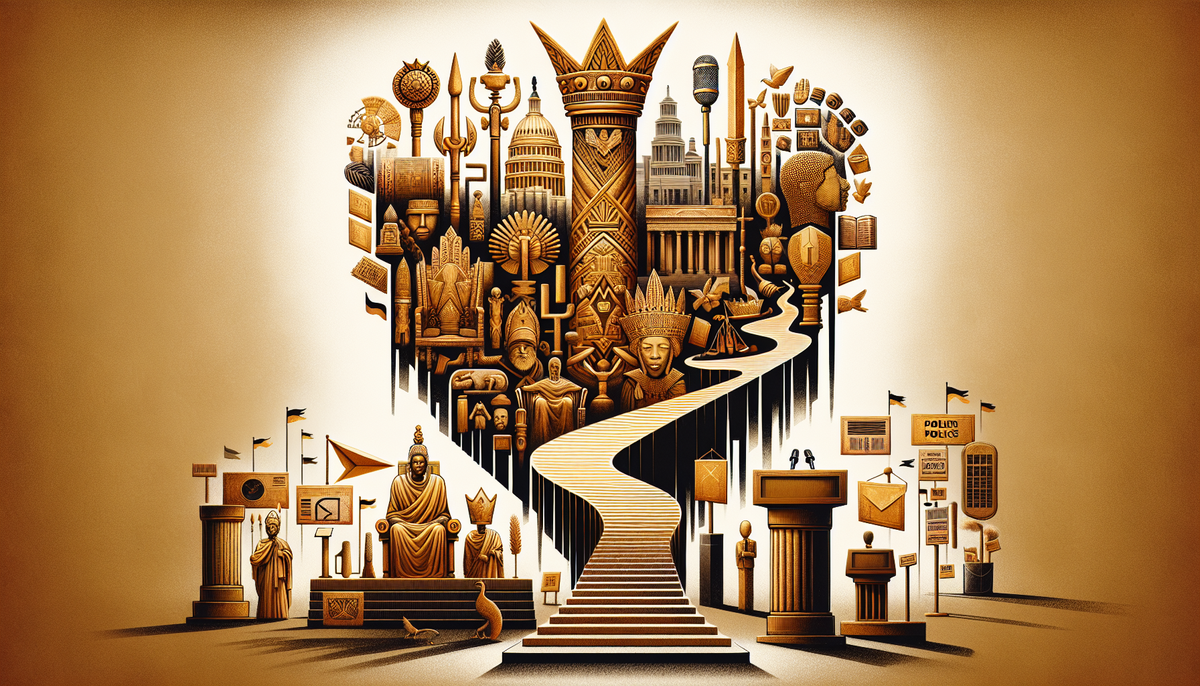
Influence of African Sovereigns on Contemporary Leadership Models
The legacy of ancient African kings and queens profoundly shapes contemporary leadership models across the continent and beyond. Historically, these sovereigns exemplified various governance styles rooted in community engagement, holistic decision-making, and societal welfare. Many modern leaders draw inspiration from the principles of accountability and transparency that characterized the rule of notable figures such as Mansa Musa of the Mali Empire and Queen Amina of Zazzau.
In several African nations, the concepts of collective leadership and council governance—practiced by traditional leaders—remain influential. Today's political figures often emphasize inclusive dialogue, reflecting the communal approach of their ancestors. For instance, the Ubuntu philosophy, which stresses interconnectedness and mutual respect, has gained traction in modern governance frameworks.
Moreover, the historical emphasis on diplomacy and trade relations can be seen in the foreign policies of contemporary African nations. Leaders today often prioritize regional cooperation, mirroring the age-old alliances formed by their predecessors.
As Africa continues to navigate complex political landscapes, the wisdom and practices of ancient kings and queens serve as crucial touchstones, reminding current leaders of the importance of ethical governance and the welfare of their people.
Historical Governance Structures and Their Reflection in Today's Political Systems
Ancient African governance structures showcase a rich tapestry of political organization, with principles that resonate within modern political systems. Many early African societies operated through centralized kingdoms, where monarchs ruled over vast territories, often maintaining authority with advisory councils composed of elders or chiefs. These councils facilitated community representation and fostered a sense of collective decision-making, a practice that can be seen in various contemporary governments prioritizing participatory politics.
Furthermore, the decentralized political systems of the Igbo and the Yoruba, characterized by democratic assemblies and autonomous councils, echo in modern democratic frameworks that emphasize local governance and grassroots participation. The concept of checks and balances, originally established to prevent the abuse of power among ancient rulers, is now foundational to many democratic constitutions.
Additionally, the custom of consensus-building among tribes and communities still finds relevance today, especially in the context of negotiation and conflict resolution. By integrating traditional practices into contemporary governance, many African nations embrace their historical heritage while addressing modern challenges. This blend of ancient wisdom and contemporary functionality offers a unique blueprint for governance, illustrating how historical structures can inform and enrich today's political landscapes.
Role Models from Ancient Kingdoms and Their Impact on Modern Governance
Ancient African kings and queens offer a wealth of role models whose legacies continue to influence modern governance. Leaders such as Haile Selassie of Ethiopia and Nzinga of Ndongo and Matamba exemplified resilience, strategic diplomacy, and a commitment to sovereignty in the face of colonial pressures. Their ability to unite diverse factions and promote national identity provides valuable lessons for contemporary leaders grappling with issues of fragmentation within diverse societies.
Queen Makeda, known as the Queen of Sheba, symbolizes wisdom and diplomatic acumen. Her legendary interactions with King Solomon underscore the importance of international relations and trade, lessons that modern governments seek to replicate through strategic partnerships and economic collaboration.
Similarly, the egalitarian ideals of the Oyo Empire, where authority was shared among a council of chiefs, resonate in today’s movements advocating for decentralized governance and local representation.
By drawing inspiration from these historical figures, modern leaders are reminded of the virtues of courage, wisdom, and dedication to their people. The enduring impact of these ancient role models extends beyond mere historical reference; they serve as guiding lights for ethical governance, inspiring contemporary leaders to navigate the complexities of modern political landscapes with integrity and vision.
Cultural Heritage and Its Integration into Modern Political Ideologies
Cultural heritage plays a crucial role in shaping modern political ideologies in Africa, intertwining historical traditions with contemporary governance. Many nations draw upon indigenous values and practices as they develop political frameworks, fostering a sense of identity and continuity. The integration of cultural heritage into modern politics can be seen in the revival of traditional leadership roles and collaborative decision-making processes, reflecting the communal approaches of ancient societies.
For instance, the principles of Ubuntu, which emphasize interconnectedness and community responsibility, have found their way into various African constitutions and political thought. This philosophy encourages leaders to prioritize the collective well-being of society over individual ambitions, promoting policies that focus on social justice, equity, and reconciliation.
Moreover, traditional ceremonies and cultural practices are increasingly recognized as vital components of nation-building and governance. They provide avenues for public participation and engagement, allowing citizens to connect with their history and heritage while actively shaping their political landscape.
Leaders often harness cultural motifs to inspire national unity and civic pride, reinforcing the idea that governance should resonate with the people’s cultural identity. Thus, the integration of cultural heritage into modern political ideologies not only enriches governance but also reinforces the essence of democracy rooted in the values and traditions of the people.
Strategic Innovations by African Monarchs and Their Application in Current Politics
Throughout history, African monarchs have employed strategic innovations that continue to inform modern political practices. Notable figures such as Mansa Musa of the Mali Empire displayed exceptional economic foresight and diplomacy, which modern leaders can learn from as they navigate global economic systems. Mansa Musa’s famed pilgrimage to Mecca, where he distributed wealth, not only showcased his power but also established trade relationships that benefited his kingdom. Contemporary politicians can draw on this concept by fostering international partnerships that promote economic growth and stability.
Additionally, the military strategies devised by ancient rulers, like the guerrilla tactics used by King Shaka Zulu, emphasize adaptability and resourcefulness. These methods can inspire current leaders to develop innovative approaches to conflict resolution and national security, adjusting to contemporary challenges in a dynamic political landscape.
Furthermore, the systems of governance developed in ancient kingdoms, which often emphasized meritocracy and skill over hereditary privilege, resonate with today’s calls for inclusive political environments. Leaders who embrace such principles foster accountability and transparency, echoing the historical traditions of African governance.
In essence, the strategic innovations of ancient African monarchs serve as a repository of wisdom, equipping modern leaders to confront today's complexities with creativity and insight.
Economic Policies of Ancient Rulers and Their Influence on Today’s Economic Strategies
The economic policies of ancient African rulers laid foundational principles that continue to influence contemporary economic strategies across the continent. Leaders like Mansa Musa of the Mali Empire and Ashoka of the Maurya Empire displayed remarkable economic acumen, focusing on wealth generation, trade expansion, and infrastructure development. Mansa Musa’s promotion of trade routes across the Sahara not only enriched his kingdom but also facilitated cultural exchange, echoing today’s emphasis on global trade partnerships and economic integration through regional organizations like the African Union.
Moreover, the agricultural practices established by ancient rulers, emphasizing sustainability and communal farming, are increasingly relevant as modern economies seek to address food security challenges and environmental sustainability. Governance models that incentivized local production and self-sufficiency resonate with contemporary policies promoting agricultural innovation and land reform.
Additionally, taxation systems employed by historical empires, which sought to balance the financial needs of the state with the welfare of the populace, remind modern policymakers of the importance of equitable economic policies. This legacy underscores the need to develop fiscal strategies that support economic growth while ensuring social equity.
Overall, the economic wisdom of ancient rulers serves as a guiding framework, inspiring contemporary leaders to craft strategies that embrace both tradition and innovation.
Militaristic Tactics of Historic Leaders and Modern Defense Strategies
The militaristic tactics employed by historic African leaders have significantly influenced contemporary defense strategies, illustrating the enduring nature of military innovation. Leaders such as Hannibal Barca and Shaka Zulu are renowned for their revolutionary approaches to warfare, emphasizing mobility, psychological tactics, and battlefield strategies that contemporary military doctrines still respect and study today.
Hannibal's use of innovative formations during the Second Punic War showcased the importance of strategic positioning and deception, principles that modern military strategies adopt in maneuver warfare and asymmetric conflicts. His audacious crossing of the Alps remains a study in logistics and surprise, underscoring the value placed on adaptability in modern combat scenarios.
Similarly, Shaka Zulu's introduction of the "buffalo formation" revolutionized close-quarters combat, focusing on speed and the element of surprise. This emphasis on tactical innovation can be seen in current military operations that prioritize rapid response and adaptability in diverse combat environments.
Furthermore, the role of leadership in motivating troops and fostering loyalty is as relevant today as it was in ancient times. Modern military forces increasingly recognize the importance of psychological operations and civil-military relations, echoing the enduring legacies of historic leaders. Overall, the tactical innovations of ancient warriors continue to inform and shape contemporary defense strategies on the global stage.
